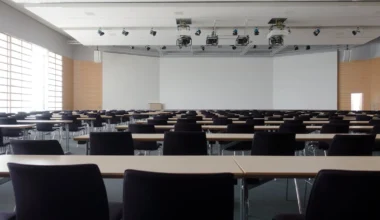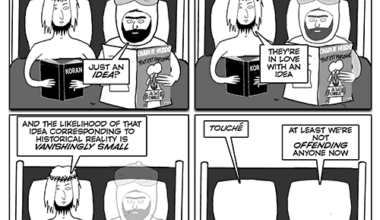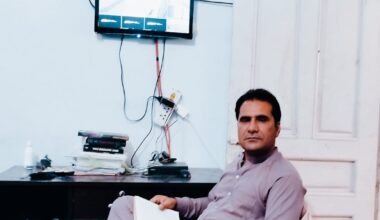
In the Netherlands, House of Representatives elections were held on 22 November 2023. This turned out to be a great victory for Geert Wilders’ party (Party for Freedom; PVV), which gained 37 seats out of 150. Other parties with a significant vote share included the Party for Freedom and Democracy (VVD), which won 24 seats, New Social Contract (NSC), which won 20 seats, and Farmers and Civilians (BBB), which won 7 seats. PVV is generally considered to be a populist party and VVD a traditional liberal party, while NSC is a Christian democratic party and BBB is for the protection of farmers’ interests.
On 28 November 2023, the Speaker of the House of Representatives assigned an informateur: Ronald Plasterk. An informateur investigates which parties can form a coalition in the wake of an election and presides over negotiations between the party leaders to draw up a program of policies. Here is a description of Plasterk’s rather broad assignment:
‘1. To investigate whether agreement is or can be reached between the parties PVV, VVD, NSC, and BBB on a common baseline for safeguarding the Constitution, fundamental rights, and the democratic rule of law. 2. If, in the opinion of these four parties, agreement is reached on point 1, then subsequently investigate whether there is a real prospect of reaching an agreement on issues such as migration, security of existence (including care, purchasing power, permanent jobs and sufficient housing), good governance, security, and stable public finances, international policy and healthy business climate, climate, nitrogen agriculture and horticulture, and fisheries.’
The first task is rather striking since no Dutch political party has as its basic premise the view that the Constitution may be violated, or that fundamental rights or the democratic rule of law should be threatened. No party denies the value of fundamental rights or the model of the democratic rule of law. So, reaching a consensus on these principles ought to have been very easy. But was it?
In fact, reaching a consensus proved more difficult than expected. Indeed, it has recently become clear that one of the named parties wants to abandon negotiations: Pieter Omtzigt’s NSC, a relatively new party that emerged from a split with the Christian Democratic Appeal party last August.
Background to the informateur’s brief
We must understand the specific nature of Plasterk’s assignment against the background of a situation that the Netherlands shares with other countries in Western Europe, including Germany, the UK, and France. That background is that, for more than 20 years, Western Europe has been affected by violent terrorist attacks in which the terrorists have invoked their religion as a motivation. This religion is not Hindu, Buddhist, Christian, or Jewish, but Islamic.
Of the four political parties that have recently been exploring whether they want joint government responsibility, one party is wholly focused on this particular issue. That party is Wilders’s PVV, which essentially won the election.
Islam as a problem and a breaking point
Wilders takes the motivation given by terrorists themselves very seriously and concludes that ‘Islam’ is thus a challenge to Europe.
He also proposes measures to stop the growth of Islam. Wilders and his party have proposed measures like banning the Qur’an, expelling ‘radical Muslims’ from the Netherlands, closing mosques, and denying Islam the status of a religion (and thus excluding it from the constitutional right to freedom of religion). The PVV even made a legislative proposal to settle these things. These measures are—to put it mildly—at odds with the Dutch constitution, fundamental human rights, and the democratic rule of law—and also with the European Convention on Human Rights. Nevertheless, PVV’s most extreme ideas have been ditched by Wilders in the recent negotiations.
Contrary to what he has been accused of, Wilders does not discriminate based on skin colour. He is only vehemently anti-Islam. He is very critical of Moroccan youth but not because of their ethnicity; rather, he is concerned about the overrepresentation of Moroccans in the criminal statistics.
In any case, the negotiations for the formation of a new government are in a critical phase now. Two weeks from now (4 May 2024), the four parties involved in negotiations will tell the public whether they will make the jump. Is there still hope?
Two clashing perspectives
I think there are still chances for a settlement. Let us first put the question: what should the conversation between the four parties mentioned at the beginning of this article be about? There are two opposing perspectives.
First, that of journalist Peter Oborne, as set out in his book The Fate of Abraham: Why the West is Wrong about Islam (2022). Oborne argues that throughout the Western world, people are needlessly worried about Islam. Islam is an ‘ordinary religion’, and all stories about Islam as inherently violent or impossible to integrate into democratic conditions are based on false assumptions.
Second, there is Anne Marie Waters’s perspective, as set out in her Beyond Terror: Islam’s Slow Erosion of Western Democracy (2018). The title speaks for itself.
Geert Wilders, in his book Marked for Death: Islam’s War Against the West and Me (2012), took a stand supportive of Waters’s point of view and illustrates this with numerous examples. Not least the example of his own life: he has been on the hit list of jihadist terrorist organizations for decades.
In my view, Oborne is naïve. But Waters (and Wilders) are too pessimistic. What we should do is focus on Islamism, or political Islam, not on Islam as such.
The significance of this debate
This debate is also of great interest to freethinkers and atheists. If Waters and Wilders are right, then it is not only permissible but urgent that restrictive measures be taken to protect the democratic rule of law from the forces that undermine it. And if Oborne is right, anything Wilders proposes is out of order, discriminatory, and contrary to the Constitution, the democratic rule of law, and the fundamental rights of citizens.
France as a guiding country
The most interesting developments on the status of Islam and its practitioners in Europe are currently taking place in France. This is not surprising. France has the largest Muslim population compared to other Western European countries, and it has also been hit by the most horrific jihadist attacks. Think of Charlie Hebdo (2015), the Bataclan (2015), and the beheading of Samuel Paty (2020). These events, together with France’s century-long tradition of thoroughgoing laïcité, have unleashed an unprecedented intellectual energy in finding solutions to the related problems of Muslim integration and Islamic/Islamist terrorism.
The most recent development is the struggle against ‘Islamist separatism’. In 2020, President Emmanuel Macron vowed to tackle this phenomenon, which he described as the attempt of France’s Muslim community to supplant civil laws with its own laws and customs derived from religious practice. The Macron administration opposes this because it essentially creates two parallel societies.
In my view, the solution lies in recognizing that Islamism poses a challenge to Western European countries, but that, at the same time, one should try to respect the rights of all citizens, including Muslim citizens, as much as possible. One way to do this is to avoid creating privileges for religious minorities, e.g., granting Muslims the right to wear headscarves in situations where this is forbidden for all citizens (such as in the army or the judiciary).
One finds this line of argument defended, for example, by the French philosopher Sylviane Agacinski in her Face à une guerre sainte (2022) and by the French lawyer Richard Malka in Traité sur l’intolérance (2023). What these approaches have in common is targeting Islamism, rather than Islam itself.
So what Wilders will have to convince his interlocutors of is that Islamism is a real problem, not just in the Netherlands but in all of Europe—and the world.
Wilders is also a well-known Dutch politician in other parts of the world. Indeed, he is so well known that jihadist-motivated murderers have travelled from Pakistan to the Netherlands to kill him. In 2019, Pakistani Junaid I. was sentenced to 10 years in prison for an attempt to kill Wilders, while last year, the Pakistani ex-cricketer Khalid Latif was sentenced to 12 years for incitement to murder Wilders.
The Netherlands as a test case
The Netherlands could become a test case for developments in other parts of Europe. At present, in Germany and Belgium, parties similar to Wilders’s are on track for steep gains in 2024. These parties are critical of Islam and mass migration and in favour of national sovereignty. This is generally characterized as the ‘far-rightisation’ of Europe or the ‘normalisation of the far right’. It is a matter for debate whether this increasing drift to the right among the populations of these European countries ought to be of serious concern. Personally, I think the so-called right-wing parties have some good points to consider; above all their critical attitude towards the Islamist undermining of democratic institutions. Nevertheless, it is essential that Europe finds a liberal path forward. What happens in the Netherlands will be a sign of what is to come.
Further reading on religion in the Netherlands
Judging the Flying Spaghetti Monster, by Derk Venema and Niko Alm
The Enlightenment and the making of modernity, by Piers Benn







Your email address will not be published. Comments are subject to our Community Guidelines. Required fields are marked *
Donate